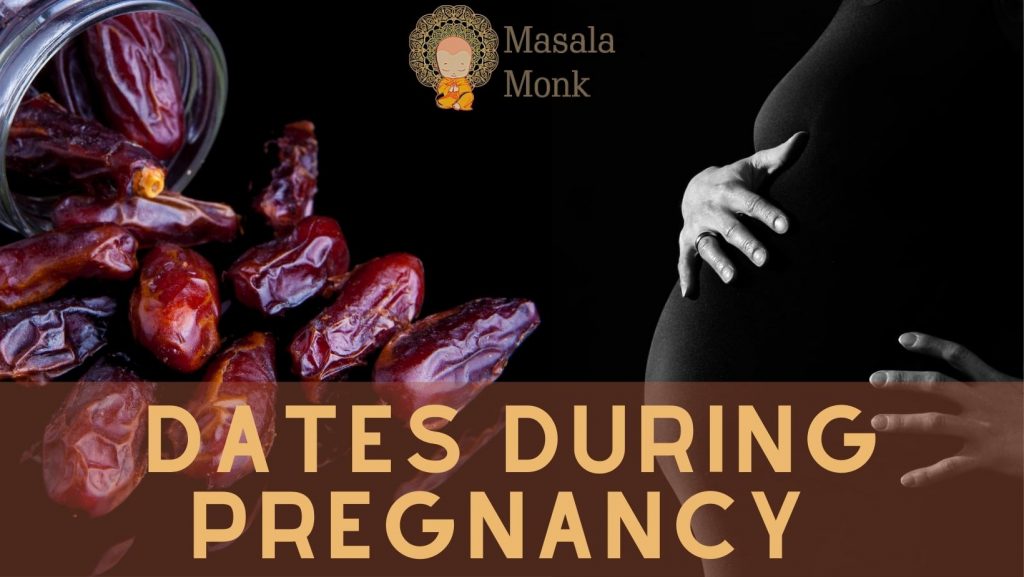
Garlic, an ancient herb revered for its culinary zest and medicinal prowess, has long been a subject of intrigue in the realm of maternal wellness. But as we navigate through an era where tradition intersects with scientific scrutiny, a pressing question emerges: How does garlic, especially in supplement form, fit into the delicate tapestry of pregnancy?
In this comprehensive exploration, we delve into the heart of this question, unearthing the layers of truths, myths, and advisories that surround the use of garlic during one of life’s most miraculous chapters – pregnancy.
Garlic: A Culinary Staple with a Medicinal Legacy
Renowned for its robust flavor and therapeutic qualities, garlic has adorned kitchen shelves and medicine cabinets for centuries. It’s a staple that has transcended culinary boundaries and entrenched itself in the annals of herbal remedies. But when it comes to pregnancy, a period characterized by heightened caution and care, the role of garlic, particularly in the form of supplements, invites a spectrum of opinions and concerns.
The Modern Dilemma: Supplements vs. Whole Garlic
In today’s wellness-conscious world, garlic is not just a food ingredient but a component of numerous health supplements. These concentrated forms promise the benefits of garlic without the need to consume it in large quantities. However, when it comes to expecting mothers, the decision to incorporate these supplements into daily routines is laden with questions. Is it safe? Does it offer the same benefits as raw or cooked garlic? Are there hidden risks?
Setting the Stage for an Informed Discussion
This post aims to provide clarity amidst the swirling clouds of speculation. We’ll examine the safety of garlic supplements during pregnancy, backed by scientific evidence and expert opinions. We’ll also explore the benefits of garlic in its natural form, compare it with its supplement counterpart, and address the common concerns and myths associated with its consumption during pregnancy.
Join us on this journey of discovery, where we unravel the mysteries of garlic in the context of pregnancy, guided by research, facts, and a keen understanding of maternal health. Whether you’re an expectant mother, a healthcare professional, or simply a garlic enthusiast, this exploration promises insights that will illuminate and inform.
Section 1: Garlic in Pregnancy – A Timeless Remedy or a Modern Concern?
The Enigmatic Role of Garlic in Maternal Health
Garlic, a culinary gem and a medicinal stalwart, has straddled the line between kitchen staple and therapeutic agent for centuries. In the realm of pregnancy, this humble herb takes center stage in a complex narrative that intertwines tradition with contemporary health concerns.
Tracing Garlic’s Traditional Roots
- Historical Significance: Garlic’s journey as a medicinal herb dates back to ancient civilizations. It was not just a culinary ingredient but a symbol of vitality and health in various cultures. In the annals of traditional medicine, from ancient Egypt to China, garlic was a go-to remedy for a myriad of ailments.
- Cultural Reverence: Diverse cultural practices have embraced garlic for its supposed protective properties, particularly for expectant mothers. It was believed to ward off evil spirits and ensure a safe pregnancy in many folk traditions.
Contemporary Medical Scrutiny
- Modern Medical Perspectives: In today’s evidence-based medical world, garlic is viewed through a more scrutinizing lens, particularly when it comes to its impact on pregnancy. While its health benefits are well-documented, the nuances of its effects during pregnancy invite careful examination.
- Nutritional Breakdown: Understanding garlic’s composition – the presence of compounds like allicin, its antioxidant capacity, and its rich vitamin and mineral content – is crucial. This knowledge forms the foundation for assessing its role and safety in pregnancy nutrition.
The Rise of Garlic Supplements in Modern Healthcare
- The Supplement Era: With the advent of dietary supplements, garlic has been transformed into various concentrated forms like pills, powders, and oils. These products promise the benefits of garlic without the need for consuming it in its natural form. However, this convenience brings forth new questions about efficacy and safety during pregnancy.
- Evaluating Supplement Safety: The potency and concentration of garlic in these supplements vary significantly from its natural state. This raises concerns about dosage, potential side effects, and interactions with pregnancy-specific physiological changes.
- The Balancing Act: Expectant mothers and healthcare providers now face the challenge of balancing the traditional benefits of garlic with the modern considerations of supplement consumption. This includes understanding how garlic supplements interact with pregnancy-specific conditions and medications.
Bridging Tradition with Science
- Respecting Traditional Wisdom: While modern medicine often demands rigorous scientific evidence, there is value in acknowledging the historical and cultural significance of garlic in maternal health. This respect for tradition, coupled with scientific inquiry, can offer a more holistic view.
- The Need for Continued Research: As garlic continues to be a subject of interest in prenatal care, the need for more targeted research becomes evident. Studies specifically focusing on the effects of garlic and its supplements during pregnancy could provide clearer guidelines and recommendations.
In this exploration of garlic’s role in pregnancy, we are reminded of the intricate relationship between traditional remedies and modern medical practices. As we delve deeper into the specifics of garlic supplements and their safety, our goal remains to offer a nuanced and well-informed perspective, empowering expectant mothers to make choices that best suit their health and cultural contexts.
Section 2: The Great Debate – To Supplement or Not?
Navigating the Complexities of Garlic Supplementation During Pregnancy
In the realm of prenatal care, the use of garlic supplements presents a complex puzzle. While the herb in its natural form is a familiar kitchen ingredient, its concentrated supplement form raises crucial questions about safety, efficacy, and appropriateness during pregnancy.
Assessing the Safety of Garlic Supplements
- Potential Risks: The primary concern with garlic supplements is their concentrated nature. High doses of garlic could lead to lower blood pressure and blood thinning, which can be problematic, especially as the due date approaches. The risk of excessive bleeding during delivery is a significant consideration.
- Dosage Dilemmas: Determining a safe and effective dose of garlic supplements during pregnancy is challenging. Unlike whole garlic, supplements can deliver a potent and variable amount of active ingredients, making standardization and safety assessment more complicated.
Experts Weigh In
- Medical Opinions: Healthcare professionals often exercise caution regarding garlic supplements in pregnancy. The lack of consensus among health organizations on the safety of these supplements adds to the ambiguity. Many doctors advise sticking to garlic in food amounts rather than supplement form.
- Research Insights: Some studies suggest potential benefits of garlic for conditions like hypertension and high cholesterol, which could be relevant for certain pregnancy complications. However, the applicability of these findings to pregnant women is not well-established.
Comparing Garlic in Food vs. Supplement Form
- The Natural Choice: Eating garlic as part of a balanced diet is generally considered safe during pregnancy. The quantities typically used in cooking are unlikely to pose health risks and can contribute positively to overall nutrition.
- Supplement Concerns: When it comes to supplements, the higher concentration of active compounds like allicin raises concerns about overconsumption and its possible side effects, such as digestive discomfort or alterations in blood clotting mechanisms.
Highlighting the Need for Caution
- Consulting Healthcare Providers: Given the uncertainties surrounding garlic supplements, it’s crucial for pregnant women to consult their healthcare providers before including them in their prenatal regimen. This ensures that any potential risks are weighed against the benefits in the context of individual health profiles.
- Personal Health Considerations: Each pregnancy is unique, and factors like pre-existing medical conditions, dietary habits, and overall health can influence the suitability of garlic supplements. Tailoring supplement use to personal health needs and conditions is key.
As we delve into this intricate topic, it becomes clear that while garlic, in its natural form, holds a revered place in both culinary and medicinal traditions, the decision to use garlic supplements during pregnancy should be approached with informed caution. The subsequent sections will further explore the health benefits and potential side effects of garlic, offering a comprehensive understanding of its role in pregnancy nutrition.
Section 3: Safety First – What Pregnant Women Need to Know
In the journey of pregnancy, where every nutritional choice is closely scrutinized, understanding the safety profile of garlic supplements becomes paramount. This section delves into the nuances of garlic consumption, spotlighting the crucial aspects expectant mothers should be aware of to ensure both their well-being and that of their developing baby.
Garlic Supplements: Navigating the Risks
- Blood Pressure Concerns: One of the primary risks associated with garlic supplements is their potential to lower blood pressure. While this might be beneficial in some contexts, in pregnancy, particularly in the third trimester, it can be problematic. The risk of hypotension and its implications on maternal and fetal health requires careful consideration.
- Blood Thinning Effects: Garlic’s natural anticoagulant properties, while generally beneficial, can pose risks during pregnancy. Excessive blood thinning could lead to complications during labor and delivery, such as increased bleeding, which necessitates a cautious approach to supplement consumption.
FDA Guidelines and Professional Recommendations
- Regulatory Perspectives: The FDA categorizes natural garlic as “likely safe” when consumed in food amounts. However, this safety assurance does not extend to garlic supplements, which lack specific regulatory guidelines for pregnant women.
- Healthcare Provider Advice: Medical professionals typically recommend moderation and caution. They advise that if garlic supplements are considered, they should be used under medical supervision, considering the individual health circumstances of the pregnant woman.
Side Effects of Excessive Garlic Consumption
- Digestive Upsets: Garlic, especially in high doses as found in supplements, can cause gastrointestinal discomfort, including heartburn, gas, and bloating – common concerns in pregnancy that might be exacerbated by garlic supplements.
- Allergic Reactions: While rare, allergic reactions to garlic, ranging from mild skin irritations to more severe responses, are a possibility, particularly with concentrated supplements.
When to Avoid Garlic Supplements
- Pre-existing Medical Conditions: Women with certain health conditions, such as bleeding disorders or low blood pressure, should be particularly wary of garlic supplements.
- Interactions with Medications: Garlic supplements can interact with certain medications, including blood thinners and drugs for high blood pressure. Pregnant women on such medications need to consult their doctors before taking garlic supplements.
The Importance of Informed Decision-Making
- Personalized Health Assessments: Each pregnancy is unique, and decisions regarding supplement use should be based on individual health assessments and dietary needs.
- Balancing Benefits and Risks: Weighing the potential benefits of garlic against its risks is a delicate balance that requires a thoughtful, informed approach, ideally in consultation with healthcare professionals.
Navigating the complexities of garlic supplementation during pregnancy is not just about understanding its potential benefits, but also about being acutely aware of its risks and side effects. The key lies in making informed decisions, guided by professional advice and a deep understanding of one’s health needs. As we progress to the next section, we will explore the myriad health benefits of garlic, casting light on why this ancient herb continues to be a topic of interest in maternal nutrition.
Section 4: Garlic’s Health Benefits – More Than Just Flavor
In the intricate tapestry of pregnancy nutrition, garlic stands out not only for its distinctive flavor but also for its array of health benefits. This section dives into the myriad ways garlic can positively influence the health of expecting mothers and their unborn babies, backed by scientific insights and traditional wisdom.
Nutritional Breakdown of Garlic
- A Powerhouse of Nutrients: Garlic is more than its pungent aroma and taste. It’s loaded with vital nutrients like vitamin C, vitamin B6, manganese, selenium, and fiber, all crucial for a healthy pregnancy. These nutrients support various bodily functions, from immune defense to energy metabolism.
- Allicin – The Magic Ingredient: Allicin, a compound released when garlic is crushed or chopped, is renowned for its antimicrobial and anti-inflammatory properties. This bioactive component is at the heart of many of garlic’s health benefits.
Garlic’s Multifaceted Health Benefits During Pregnancy
- Boosting Immune Health: Garlic’s natural antibiotic and antiviral properties make it a formidable ally against common infections, an essential attribute for pregnant women whose immune systems are slightly suppressed.
- Supporting Cardiovascular Health: Garlic aids in managing cholesterol levels and blood pressure, contributing to a healthier cardiovascular system. This can be particularly beneficial for women prone to pregnancy-induced hypertension.
- Digestive Comfort: The prebiotic nature of garlic helps maintain a healthy gut microbiome, promoting digestion and alleviating common gastrointestinal discomforts of pregnancy like bloating and constipation.
The Role of Garlic in Preventing Pregnancy Complications
- Reducing the Risk of Preeclampsia: Some studies suggest that garlic’s ability to regulate blood pressure and its antioxidant properties may lower the risk of developing preeclampsia, a serious pregnancy complication characterized by high blood pressure and damage to organ systems.
- Improving Birth Outcomes: Research indicates that garlic may play a role in improving birth outcomes. It has been associated with increased birth weight and reduced risk of preterm labor, particularly vital for babies at risk of being small for gestational age.
Garlic and Gestational Diabetes Management
- Blood Sugar Regulation: Garlic has shown potential in regulating blood sugar levels, making it a food of interest for managing gestational diabetes. Its natural compounds can help in maintaining stable blood glucose levels.
Garlic: A Traditional Remedy Revisited
- Historical Uses in Maternal Health: Beyond modern research, garlic has been a staple in traditional medicine for maternal health. Various cultures have utilized it for its supposed labor-inducing properties and overall fortification of health during pregnancy.
The Cautionary Note
- Balancing Benefits with Potential Risks: While garlic offers numerous health benefits, it’s important to balance these with the potential risks, especially when considering garlic supplements. The natural form of garlic, used in culinary amounts, is generally safer and can provide many of these benefits without the risks associated with high-dose supplements.
As we unfold the story of garlic in pregnancy, it’s evident that its benefits are manifold, ranging from immune support to potentially better birth outcomes. However, the key lies in moderation and understanding the nuances of its consumption, particularly in supplement form. As we move forward, we’ll delve into the myths versus facts surrounding garlic in pregnancy, further clarifying its role in maternal nutrition.
Section 5: Myths vs. Facts – Separating Truth from Fiction
In the world of pregnancy nutrition, garlic is shrouded in a blend of folklore, anecdotal evidence, and scientific research, leading to a spectrum of beliefs and misconceptions. This section aims to dissect these narratives, distinguishing myth from fact, and providing expectant mothers with clear, evidence-based information.
Myth 1: Garlic Supplements Are a Must-Have for a Healthy Pregnancy
- Fact Check: While garlic supplements offer concentrated doses of beneficial compounds, they are not essential for a healthy pregnancy. The natural form of garlic, when included in a balanced diet, suffices in providing its health benefits without the risks associated with high-dose supplements.
Myth 2: Garlic Can Induce Labor
- The Reality: The belief that garlic can induce labor is more folklore than fact. There is insufficient scientific evidence to support the claim that garlic, in any form, can initiate or accelerate labor. Such decisions and interventions should always be under medical guidance.
Myth 3: Excessive Garlic Consumption Poses No Risks During Pregnancy
- Unraveling the Truth: While garlic is generally safe in food amounts, excessive consumption, especially of supplements, can lead to complications such as blood thinning, lower blood pressure, and digestive issues. Moderation is key, and consultation with healthcare providers is essential when considering garlic supplements.
Myth 4: Garlic Is Harmful in the First Trimester
- Clarification: Garlic, when consumed as a part of regular meals, is not harmful during the first trimester. In fact, its nutrient profile can be beneficial. However, due to the body’s heightened sensitivity during early pregnancy, moderation is advised to avoid digestive discomfort.
Myth 5: Garlic Can Cure Pregnancy-Related Ailments
- Understanding Its Role: Garlic is known for its health-promoting properties, but it is not a cure-all. While it can support immune health and aid in digestion, it should not replace medical treatment for pregnancy-related ailments.
The Power of Informed Choices
- Combining Tradition and Science: Respecting traditional uses while relying on scientific evidence allows for informed decisions about including garlic in pregnancy diets.
- Personal Health Considerations: Every pregnancy is unique, and what works for one individual may not be suitable for another. Personal health history and current conditions should guide dietary choices.
Dispelling myths and providing factual information about garlic in pregnancy enables expectant mothers to navigate their dietary choices with confidence and clarity. As we proceed, we will explore how garlic can be safely and deliciously incorporated into pregnancy diets, offering practical tips and recipe ideas.
Section 6: Incorporating Garlic into Your Pregnancy Diet
Navigating the culinary landscape during pregnancy can be both exciting and daunting. Garlic, with its robust flavor and health benefits, can be a delightful addition. This section offers practical advice on how to safely incorporate garlic into a pregnancy diet, ensuring both taste and nutrition are optimized.
Culinary Uses of Garlic in Pregnancy
- Cooking with Garlic: Garlic’s versatility makes it an excellent ingredient in various dishes. It can enhance the flavor of soups, stews, sauces, and marinades. Lightly sautéing garlic in olive oil can help mellow its flavor, making it more digestible for pregnant women who might have a heightened sense of taste and smell.
- Raw vs. Cooked: While raw garlic has potent health benefits, it can be harsh on the digestive system. Opting for cooked garlic, which is gentler, can be a better choice during pregnancy, especially for those with sensitive stomachs or experiencing morning sickness.
Creating Balanced and Nutritious Meals
- Pairing with Nutrient-Rich Foods: Incorporate garlic into meals rich in iron and protein, like lean meats or legumes, to boost nutrient absorption. Garlic pairs well with vegetables, enhancing both their flavor and nutritional uptake.
- Healthy Garlic-Infused Recipes: Experiment with garlic-infused recipes such as garlic roasted vegetables, garlic lemon chicken, or garlic and herb pasta. These dishes provide a wholesome balance of nutrients, catering to the dietary needs of pregnancy.
Alternative Ways to Enjoy Garlic
- Garlic Supplements with Caution: If opting for garlic supplements, it’s crucial to do so under medical guidance. Supplements can provide a concentrated dose of garlic without the need for cooking, but understanding the appropriate dosage and potential interactions is key.
- Natural Garlic Remedies: For those seeking the health benefits of garlic without consuming it directly, incorporating small amounts into broths or teas can be beneficial. This method allows for a milder intake while still gaining some of garlic’s health properties.
Tips for Managing Garlic Intake
- Monitoring Portion Sizes: Pay attention to how much garlic is consumed in meals. Using it as a flavor enhancer rather than the main ingredient can help manage intake.
- Listening to Your Body: Pregnancy is a time of heightened bodily awareness. Pay attention to how your body reacts to garlic. If certain preparations cause discomfort, it may be wise to adjust how you include it in your diet.
Ensuring Safe Consumption
- Hygiene and Preparation: Ensure garlic is fresh and properly stored. Wash hands after handling raw garlic and clean surfaces to maintain hygiene.
- Quality of Garlic: Opt for organic garlic when possible to avoid potential pesticide exposure. Fresh garlic is preferable to pre-minced or processed variants, which may contain additives.
Incorporating garlic into a pregnancy diet can be both enjoyable and beneficial, provided it’s done with mindfulness and moderation. From enhancing the flavor of meals to tapping into its health benefits, garlic can be a valuable component of prenatal nutrition. Next, we delve into the critical aspect of garlic supplementation during pregnancy, weighing the warnings against the safety considerations.
Section 7: When to Say No – Warnings for Pregnant Women
While garlic is generally celebrated for its flavor and health benefits, it’s crucial for pregnant women to recognize situations where caution is warranted, especially regarding garlic supplements. This section highlights potential risks and situations where garlic, particularly in supplement form, should be used with caution or avoided.
Understanding the Risks of Garlic Supplements
- Blood Thinning Properties: Garlic’s natural ability to thin the blood, while beneficial under certain circumstances, poses a significant risk during pregnancy, especially close to delivery. It can increase the chances of bleeding, which is a major concern during and after childbirth.
- Interactions with Medications: Garlic supplements have the potential to interact with certain medications, including those used for blood clotting and blood pressure. Pregnant women on such medications should exercise extreme caution and consult with healthcare providers before considering garlic supplements.
Situations Warranting Caution
- Pre-existing Health Conditions: Women with a history of bleeding disorders, low blood pressure, or other specific medical conditions should be particularly cautious about using garlic supplements, as these could exacerbate their health issues.
- Surgical Procedures: In the context of planned cesarean sections or other surgical interventions, the consumption of garlic supplements should be halted well in advance to reduce the risk of excessive bleeding.
Recognizing and Managing Side Effects
- Digestive Discomfort: High doses of garlic, particularly from supplements, can cause gastrointestinal issues like heartburn, gas, and bloating. Pregnant women experiencing these symptoms should reconsider their garlic intake.
- Allergic Reactions: Be aware of any allergic responses to garlic, which can range from mild skin irritation to more severe reactions. In such cases, discontinuing the use of garlic supplements is essential.
Personal Stories and Experiences
- Shared Experiences: Include anecdotes or testimonials from other pregnant women or new mothers who have experienced complications or side effects from consuming garlic or garlic supplements. These real-life stories can offer valuable insights and cautions for readers.
Making Informed Decisions
- Weighing Benefits Against Risks: It’s important for pregnant women to weigh the potential health benefits of garlic against its risks. This decision-making process should involve careful consideration of personal health history and current conditions.
- Consultation with Healthcare Providers: Before adding garlic supplements to their prenatal care regimen, women should consult with their healthcare providers. This ensures any potential risks are thoroughly evaluated and managed.
Navigating the use of garlic and garlic supplements during pregnancy requires a balance of understanding its benefits and being aware of its risks. By providing clear information on when to exercise caution, this section aims to empower expectant mothers to make informed choices about their dietary intake, prioritizing their safety and the well-being of their unborn child. In the next section, we will explore the myths versus facts surrounding garlic in pregnancy, further clarifying its role in maternal nutrition.
Section 8: Garlic Myths vs. Facts – Demystifying Common Beliefs in Pregnancy
Pregnancy is often a time of heightened curiosity and concern, leading to a search for safe and effective dietary choices. Garlic, with its rich history and health claims, is subject to many myths and misconceptions. In this section, we aim to demystify these beliefs, separating fact from fiction to provide expectant mothers with accurate and useful information.
Myth 1: Garlic Supplements are Essential for a Healthy Pregnancy
- Fact Check: While garlic itself is a healthy addition to a diet, supplements are not a necessity for a healthy pregnancy. The key nutrients that garlic provides can typically be obtained from a balanced diet. Supplements, due to their potency, might pose risks rather than benefits.
Myth 2: Consuming Garlic Can Prevent Pregnancy Complications
- The Reality: Although garlic has health benefits, such as boosting immunity and potentially improving cardiovascular health, there is no conclusive evidence that it can prevent specific pregnancy complications like preeclampsia or gestational diabetes. It should be viewed as a part of an overall healthy diet rather than a standalone preventive measure.
Myth 3: Garlic is Unsafe During Pregnancy
- Clarifying the Misconception: Garlic, when consumed in food amounts, is generally safe during pregnancy. The caution mainly applies to garlic supplements, which provide a much higher dose of active compounds and can have side effects or interact with other medications.
Myth 4: Eating Garlic Can Induce Labor
- Debunking the Myth: There is no scientific evidence to support the claim that garlic can induce labor. This belief is likely rooted in folklore rather than fact. Decisions about inducing labor should always be based on medical advice and not on dietary choices.
Myth 5: Garlic Causes or Worsens Heartburn During Pregnancy
- Understanding the Condition: While some pregnant women might experience heartburn after consuming garlic, it’s not a universal reaction. Heartburn in pregnancy is typically due to hormonal changes and the growing uterus. However, if garlic aggravates heartburn for an individual, reducing its intake is advisable.
Educating for Informed Choices
- Balancing Traditional Beliefs and Modern Knowledge: While respecting traditional uses of garlic in pregnancy, it’s crucial to align these beliefs with current scientific understanding. This approach ensures that decisions are based on a combination of cultural respect and evidence-based information.
- Seeking Personalized Advice: Given the unique nature of each pregnancy, consulting healthcare providers for personalized dietary advice is paramount. This is especially true when considering the use of supplements or addressing specific health concerns.
In shedding light on these myths and facts about garlic in pregnancy, our goal is to empower pregnant women with knowledge that aids in making informed dietary decisions. By understanding the true nature of garlic’s impact on pregnancy, women can navigate their prenatal nutrition with confidence and clarity. Up next, we will explore practical ways to incorporate garlic into a pregnancy diet, offering tasty, healthy, and safe recipe ideas.
Section 9: Incorporating Garlic into Your Pregnancy Diet
Embracing garlic in your pregnancy diet can be a delightful and healthy culinary adventure. This section is dedicated to offering practical advice on incorporating garlic into meals, ensuring they are not only nutritious and safe but also cater to the diverse taste preferences that often accompany pregnancy.
Cooking with Garlic: Flavorful and Nutritious Recipes
- Garlic-Infused Dishes: Enhance the flavor of everyday meals with garlic. Consider garlic-based marinades for meats or tofu, add minced garlic to sautés and stir-fries, or incorporate it into soups and stews for a flavor boost.
- Balancing Flavor and Nutrition: Moderate the use of garlic to balance its strong flavor and to avoid potential digestive discomfort. Pairing garlic with other pregnancy-friendly ingredients like ginger, which can aid in digestion and nausea, creates not only a delicious combination but also a nutritious one.
Garlic in Different Cuisines: Exploring World Flavors
- Cultural Culinary Delights: Pregnancy is a great time to explore different cuisines that use garlic. From Italian pasta sauces to Indian curries, garlic adds depth and richness to dishes from around the globe. Experimenting with these recipes can introduce new flavors and nutrients to your diet.
- Garlic as a Condiment: Utilize garlic in more subtle ways, such as in homemade garlic-infused olive oil or as a light seasoning for vegetables and salads. This approach allows for the inclusion of garlic without it being overwhelming.
Creative Garlic Recipe Ideas for Pregnancy
- Simple and Quick Recipes: Share easy-to-prepare recipes that incorporate garlic, such as garlic and herb roasted vegetables, garlic lemon chicken, or creamy garlic pasta. These dishes can be both comforting and quick to prepare, perfect for days when energy levels are low.
- Healthy Snacking with Garlic: Suggest ideas for healthy garlic-flavored snacks, like roasted garlic hummus with veggies or garlic yogurt dip. These snacks provide essential nutrients while satisfying those pregnancy cravings.
Managing Garlic Intake: Tips for Pregnant Women
- Monitoring Portions: While garlic is beneficial, it’s essential to monitor portion sizes. Large quantities can lead to discomfort, particularly for those sensitive to strong flavors or prone to heartburn.
- Understanding Personal Tolerances: Every pregnancy is different, and so are reactions to various foods. Pay attention to how your body responds to garlic and adjust your intake accordingly.
Ensuring Safe Consumption of Garlic
- Freshness and Quality: Opt for fresh garlic cloves over pre-minced versions, which might contain preservatives or additives. Fresh garlic ensures you’re getting the natural benefits without any unwanted chemicals.
- Hygiene in Preparation: Practice good hygiene when handling and preparing garlic. Ensure that cutting boards and utensils are clean to prevent any cross-contamination.
Incorporating garlic into your pregnancy diet can add both flavor and nutrition to your meals. Whether you’re using it as a primary ingredient or a subtle flavor enhancer, garlic can contribute positively to your prenatal nutritional needs. Up next, we will explore the importance of consulting with healthcare providers when considering garlic supplements during pregnancy, emphasizing the need for personalized nutritional advice.
Section 10: Consulting Healthcare Providers – Navigating Garlic Supplements in Pregnancy
Pregnancy is a journey that calls for careful consideration of dietary choices, especially when it comes to supplements. This section emphasizes the critical role of healthcare providers in guiding pregnant women on the use of garlic supplements, ensuring that decisions are made based on individual health profiles and needs.
The Importance of Professional Guidance
- Seeking Expert Advice: The use of garlic supplements during pregnancy should never be a unilateral decision. Consulting with obstetricians, dietitians, or other healthcare professionals is vital to assess the safety and necessity of these supplements for each individual.
- Personalized Health Assessments: Every pregnancy is unique, with different nutritional requirements and health considerations. Healthcare providers can offer personalized advice based on a woman’s medical history, current health status, and specific pregnancy conditions.
Understanding the Risks and Benefits
- Evaluating Potential Benefits: While garlic supplements may offer concentrated forms of the beneficial compounds found in garlic, healthcare providers can help evaluate whether these benefits are relevant and necessary for a particular pregnancy.
- Weighing Against Possible Risks: Professionals can provide insights into the potential risks associated with garlic supplements, such as their impact on blood pressure and clotting, and advise on safer alternatives if necessary.
Navigating Medication Interactions
- Assessing Drug-Supplement Interactions: Pregnant women often take various medications and prenatal vitamins. Healthcare providers can help navigate potential interactions between these medications and garlic supplements, ensuring safe and effective prenatal care.
When to Avoid Garlic Supplements
- Identifying Contraindications: Certain conditions, such as pre-existing bleeding disorders or low blood pressure, may contraindicate the use of garlic supplements. Healthcare professionals can identify these situations and recommend dietary adjustments accordingly.
The Role of Garlic in Overall Pregnancy Nutrition
- Incorporating Garlic Naturally: Often, the benefits of garlic can be obtained through dietary sources without the need for supplements. Healthcare providers can suggest ways to include garlic in meals safely and beneficially.
- Alternative Nutritional Strategies: In cases where garlic supplements are not advisable, professionals can recommend alternative strategies to achieve similar nutritional goals, ensuring a balanced and comprehensive prenatal diet.
Empowering Informed Decision-Making
- Providing Comprehensive Information: Healthcare providers can offer a wealth of information, from the latest research to practical dietary tips, empowering expectant mothers to make informed decisions about garlic supplementation.
- Encouraging Open Communication: Pregnant women should feel comfortable discussing their dietary habits, concerns, and preferences with their healthcare team. This open communication is crucial for tailoring prenatal care to individual needs.
Consulting with healthcare providers about the use of garlic supplements during pregnancy is a crucial step in ensuring safe and effective prenatal nutrition. It allows for informed decision-making, personalized care, and the optimal health of both mother and child. As we conclude this comprehensive guide, the final section will summarize key takeaways and reinforce the importance of professional consultation in making dietary choices during pregnancy.
Section 11: Conclusion – Embracing Informed Choices for a Healthy Pregnancy
As we conclude our comprehensive exploration of garlic in the context of pregnancy, it’s essential to reflect on the key insights gathered. This final section aims to encapsulate the crucial takeaways from our discussion, emphasizing the importance of informed decision-making and personalized care during this pivotal journey.
Summarizing the Garlic Narrative in Pregnancy
- Garlic’s Dual Role: We’ve seen how garlic, revered for its culinary and medicinal properties, presents both opportunities and cautions in pregnancy. Its potential health benefits are balanced by considerations regarding its form, particularly when it comes to supplements.
- The Safety of Garlic Supplements: The primary takeaway is the need for caution with garlic supplements. While garlic in its natural form is a safe and nutritious addition to a pregnancy diet, supplements pose additional risks due to their concentrated nature.
- Navigating Myths and Facts: Dispelling myths and understanding the factual basis of garlic’s effects in pregnancy is crucial. It’s vital to differentiate between traditional beliefs and evidence-based information to make sound nutritional decisions.
Reflecting on Health Benefits and Risks
- Acknowledging Garlic’s Benefits: Garlic’s role in boosting immunity, aiding digestion, and possibly contributing to cardiovascular health makes it a valuable dietary component. However, these benefits must be weighed against the risks, especially in supplement form.
- Recognizing Individual Variations: Pregnancy experiences vary greatly, and so do responses to different foods and supplements. What works for one may not be suitable for another, underscoring the need for personalized nutrition.
The Imperative of Professional Consultation
- Seeking Expert Advice: Consulting healthcare providers before introducing garlic supplements or making significant dietary changes is non-negotiable. This professional guidance ensures that the health of both mother and baby is prioritized.
- Informed Decision-Making: Armed with information and professional advice, expectant mothers can make informed decisions about including garlic in their diet. This process involves understanding personal health needs, considering potential risks, and evaluating the benefits.

Closing Thoughts: A Journey of Balance and Care
- Empowering Pregnant Women: This guide aims to empower pregnant women with knowledge and understanding. It’s about making choices that are not only beneficial but also safe and suitable for their unique pregnancy journey.
- Celebrating Garlic’s Richness: As we appreciate garlic’s rich history and nutritional profile, let’s also celebrate the journey of pregnancy – a time of growth, change, and mindful nutrition.
- Continued Learning and Adaptation: Finally, the world of nutrition and pregnancy care is ever-evolving. Staying informed, adaptable, and open to learning is key to navigating this journey successfully.
In conclusion, garlic, whether as a flavor enhancer in meals or as a component of supplements, must be approached with an informed and cautious perspective during pregnancy. By balancing its traditional uses with contemporary medical advice, expectant mothers can enjoy the benefits of garlic while ensuring safety and health for themselves and their developing babies.
10 FAQs for “Garlic Supplements and Pregnancy: Warnings & Safety Considerations”
- Can I take garlic pills while pregnant?
- It’s best to consult with your healthcare provider before taking garlic pills during pregnancy. While garlic in food amounts is generally safe, supplements can be much more potent and may pose risks.
- Is eating garlic safe during pregnancy?
- Yes, eating garlic in normal dietary amounts is considered safe during pregnancy. It adds flavor and nutrition to meals without the risks associated with high-dose supplements.
- Can garlic help with pregnancy-related immune issues?
- Garlic has immune-boosting properties, which can be beneficial during pregnancy. However, it should be part of a balanced diet and not relied upon as the sole immune booster.
- Do garlic supplements cause any side effects during pregnancy?
- High doses of garlic, especially in supplement form, can lead to side effects like blood thinning, lower blood pressure, and digestive discomfort. Consult your doctor for advice specific to your health.
- How much garlic is safe to consume during pregnancy?
- For garlic in food, using it as a regular culinary ingredient is safe. If considering supplements, it’s essential to speak with a healthcare provider for personalized advice on safe dosages.
- Can garlic supplements interact with other pregnancy medications?
- Yes, garlic supplements can interact with certain medications, including blood thinners and drugs for high blood pressure. Always inform your healthcare provider about any supplements you’re considering.
- Are there any risks in using garlic as a natural remedy for pregnancy ailments?
- While garlic has several beneficial properties, relying on it as a remedy for pregnancy ailments should be done cautiously and under medical guidance, as it’s not a substitute for professional medical treatment.
- Can consuming garlic induce labor?
- There’s no scientific evidence to support the claim that garlic can induce labor. This belief is more folklore than fact, and labor induction should always be managed medically.
- What are some safe ways to include garlic in my pregnancy diet?
- Adding garlic to soups, stews, and sauces or using it to season vegetables and meats are safe ways to include it in your diet. If you experience heartburn or digestive issues, you may want to limit its amount.
- Should I stop eating garlic before delivery?
- There’s no need to stop eating garlic in food amounts before delivery. However, if you’re taking garlic supplements, discuss with your healthcare provider, as they may advise stopping them due to their blood-thinning properties.
Blog Tags for the Post
garlic and pregnancy, garlic supplements, pregnancy nutrition, prenatal care, maternal health, dietary supplements, natural remedies, pregnancy safety, immune boosters, heartburn in pregnancy














